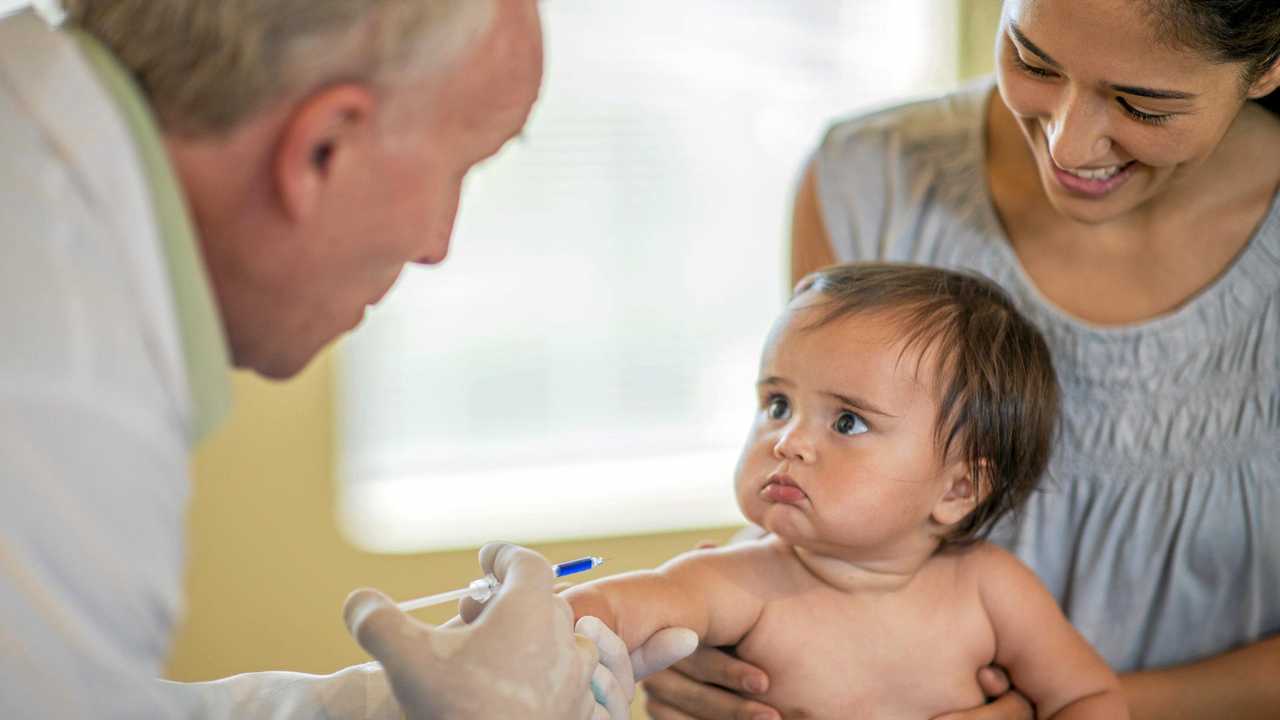Vaccines and autism: Results of 10-year study revealed
THE research followed 650,00 children from 1999 to 2010, and now the results are due to be published.

Regional news
Don't miss out on the headlines from Regional news. Followed categories will be added to My News.
A NEW scientific study which followed more than 650,000 children over a 10-year period has failed to find a link between the measles-mumps-rubella vaccine and autism.
The scientific study included 6517 children who were diagnosed with autism after the MMR vaccine, and was one of the largest studies ever on the safety of that vaccine.
In a sample of more than 650,000 children followed for several years, using data available through the Danish health system, MMR vaccination did not increase the risk for autism, or trigger autism even in those susceptible due to other factors such as family history.
In Queensland and NSW, the MMR vaccine is administered at 12 months and then again at 18 months.
A nation-wide cohort study of all children born in Denmark to Danish-born mothers between 1999 through 2010 concluded that the mumps, measles, and rubella (MMR) vaccine does not increase the risk of autism, does not trigger autism in susceptible children, and is not associated with clustering of autism cases following vaccination.
The hypothesised link between measles, mumps, rubella (MMR) vaccine and autism continues to cause concern and challenge vaccine uptake, including areas like the Northern Rivers, which records some of the lowest in the country.
The World Health Organisation (WHO) has declared vaccine hesitancy as one of the top 10 threats to global health.
Researchers from Statens Serum Institut, Denmark, used a Danish population registry to evaluate whether the MMR vaccine increases the risk for autism in children, subgroups of children, or time periods after vaccination.
Lecturer in Neuropsychology at Southern Cross University, Dr James Donnelly, said he believes parents always want to do what is best for their children.
"However, as a paediatric neuropsychology researcher and clinician, and parent and grandparent, I find it essential that we rely on findings of well-designed research such as the article due to appear in the Annals of Internal Medicine about the lack of a vaccine-autism link," he said.
"The carefully analysed results add to an already long list of studies that debunked faulty ideas about vaccinations.
"To ignore these findings would be irresponsible in my opinion, and may put children at increased risk as believing dangerous myths instead leads to poor healthcare choices.
"Sadly, there will still be those who cling to conspiracy theories or coincidental evidence that confirms their fears or suspicions."
The study, founded by Novo Nordisk Foundation and the Danish Ministry of Health was published in the Annals of Internal Medicine.



